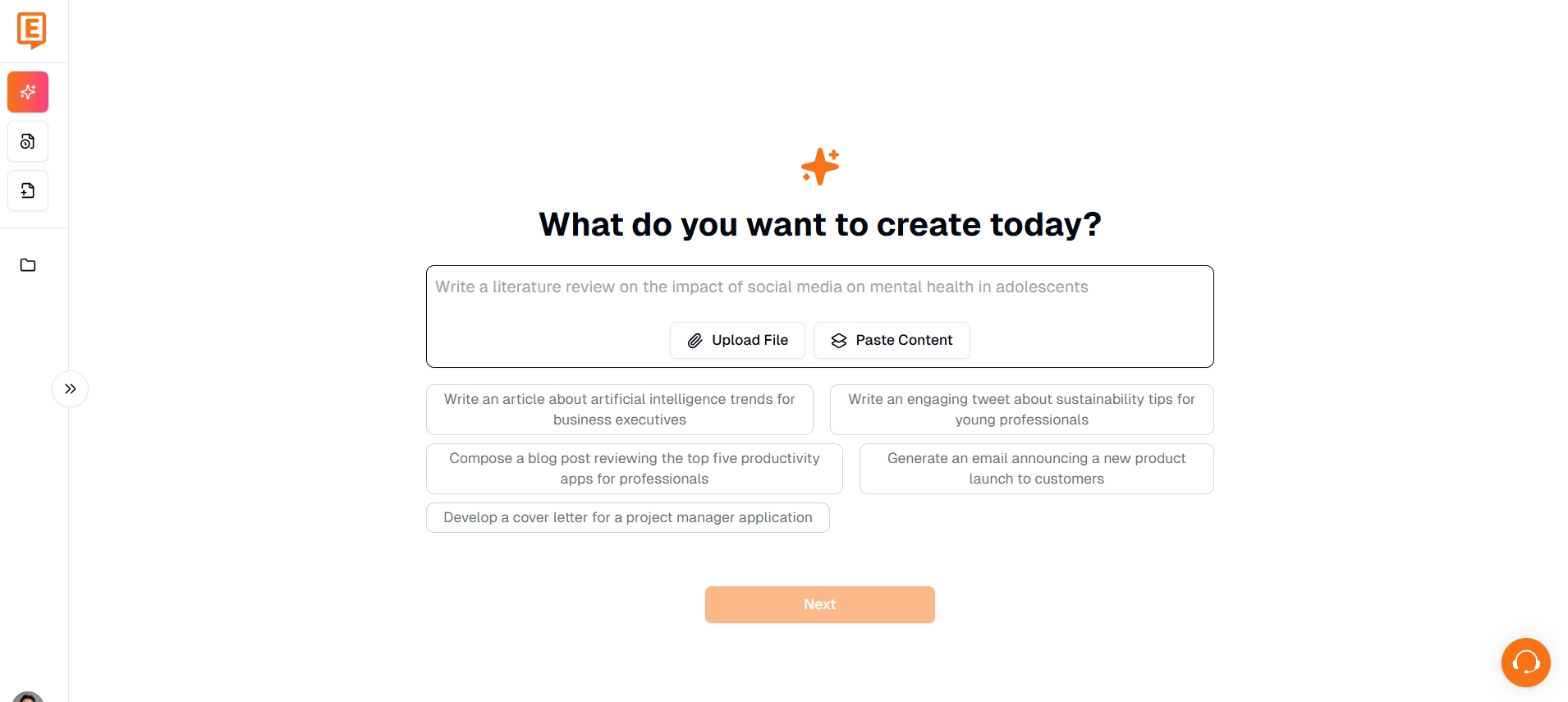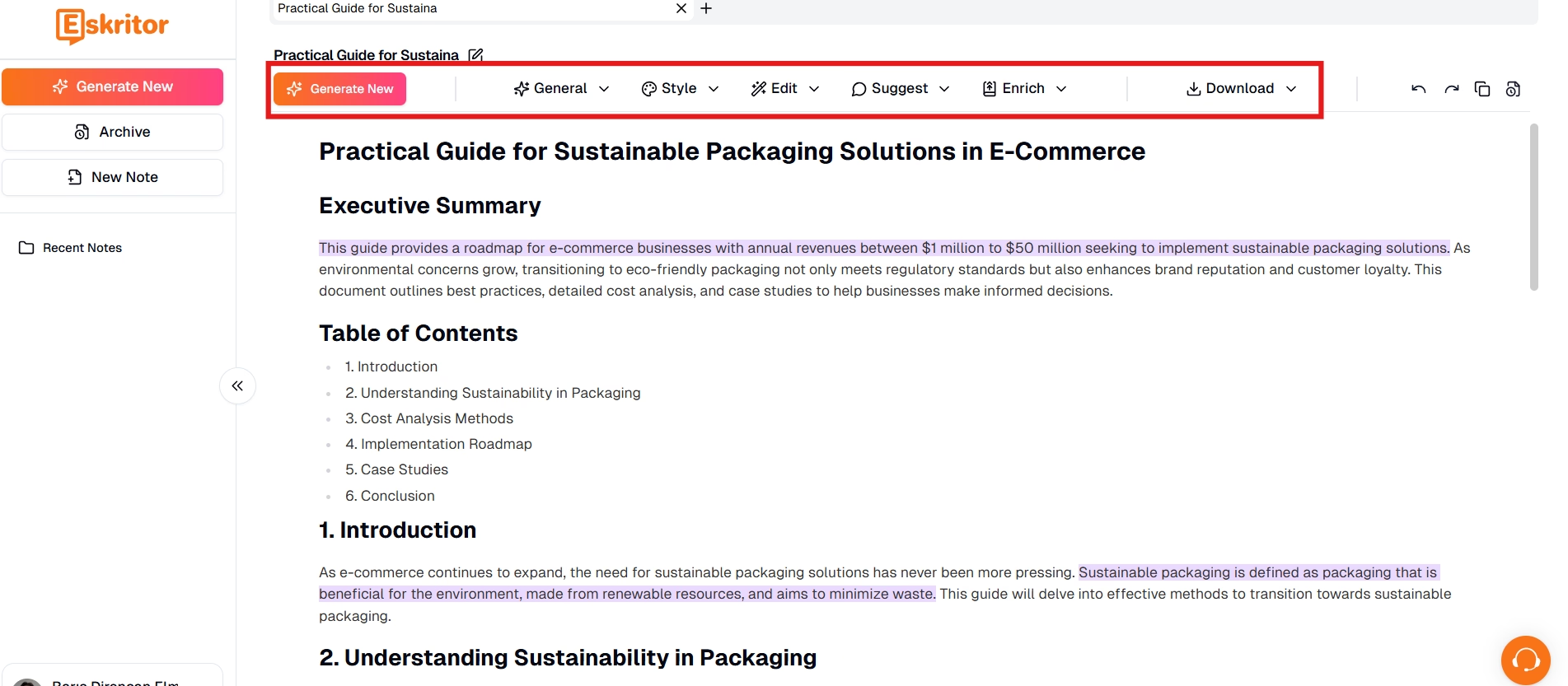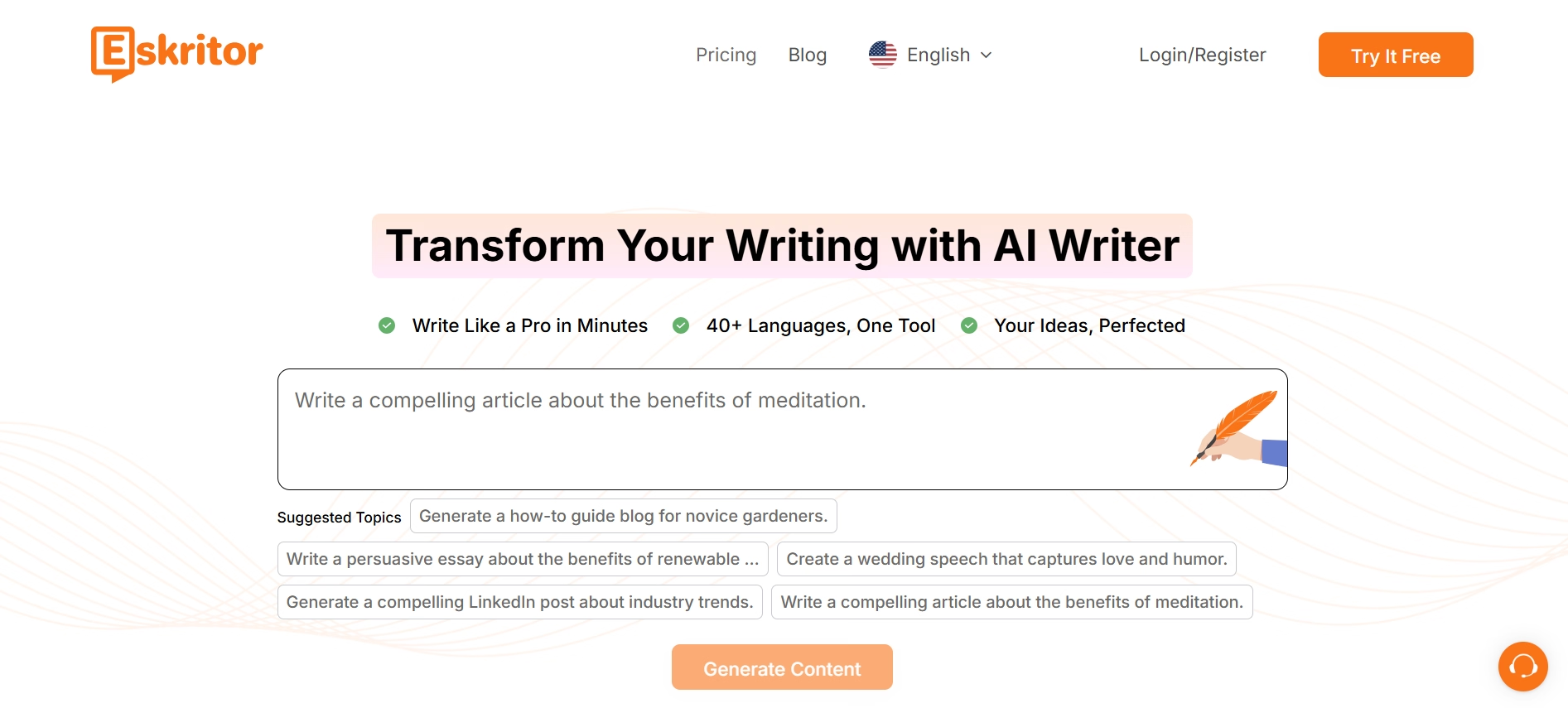
SEO Keyword Research: A Step-by-Step Beginner’s Guide
Generate the Best Content with AI in Seconds
Generate the Best Content with AI in Seconds
This guide will show you the full process of SEO keyword research and content creation. We will cover everything from the first research to the final optimization. You will learn how to analyze keywords like a pro. You will also find out how to use competitor research. Plus, you will understand the main factors that affect search rankings. Most importantly, you'll see how to transform your research into engaging content using advanced AI tools.
Understanding Professional SEO Tools
The foundation of successful SEO lies in using the right tools for keyword research. Professional tools provide in-depth data and insights that help you make informed decisions about your content strategy. Choosing the right tools can make the difference between creating content that ranks and content that gets lost in the depths of search results.
Mastering Semrush for Keyword Discovery
Semrush stands as a powerful platform for uncovering valuable keyword opportunities. When you begin your keyword analysis, start by entering your primary topic into the keyword research tool. The platform gives important metrics like monthly search volume. This shows potential traffic. It also provides keyword difficulty scores to help assess competition levels.
A comprehensive keyword analysis through Semrush reveals:
- Search volume trends and seasonal patterns
- Keyword difficulty and competition levels
- Related terms and phrase variations
- User intent signals and search context
- Content format preferences
Leveraging Ahrefs for Competitor Analysis
Competitor keywords provide invaluable insights into market opportunities. Knowing what works for your competitors can help you create your own strategy. It can also help you find unique opportunities they may have missed. A close look at their content can show patterns in how they handle different topics and which formats work best.
When doing competitor research, look at how they use different types of content. Also, see which formats work best for specific topics. This analysis helps you develop a more effective content strategy based on proven successes in your market.
A thorough competitor analysis reveals:
- Content gaps you can fill with comprehensive coverage
- High-performing keyword combinations
- Underserved topics in your market
- Content formats that resonate with your audience

Developing Your SEO Strategy
A well-planned SEO strategy forms the backbone of successful content creation. It's not enough to simply collect keywords – you need a structured approach to implement them effectively in your content. Understanding ranking factors and developing a comprehensive strategy will set you up for long-term success.
Modern SEO requires a deep understanding of how search engines evaluate and rank content. Your strategy should encompass not just keyword placement but also user experience, content quality, and technical optimization.
Creating an Effective Keyword Framework
Success in SEO demands more than just finding good keywords – it requires a structured approach to organizing and implementing your research. Begin by grouping your keywords based on search intent and topic relevance. This organization helps you develop content that serves user needs at every stage of their journey.
Your keyword framework should include both short-tail and long-tail keywords. Short-tail keywords often have higher search volume but are more competitive, while long-tail variations typically have lower volume but higher conversion potential. Create topic clusters that connect related keywords to establish topical authority while maintaining focused content development.
Understanding Modern Ranking Factors
Today's search engines use sophisticated algorithms to evaluate content quality and relevance. These ranking factors go beyond simple keyword matching to consider user experience, content depth, and technical performance.
Content quality and relevance remain primary ranking factors in search algorithms. Search engines analyze how well your content addresses user intent, its comprehensiveness, and its uniqueness compared to competing pages.
Transforming Research into Content with Eskritor
The journey from keyword research to published content requires the right tools and approach. Modern content creation demands efficiency, consistency, and optimization – areas where traditional methods often fall short. Eskritor provides an integrated solution that bridges the gap between research and content creation.
Step-by-Step Guide to Using Eskritor
Creating optimized content requires a systematic approach. The following steps will help you make the most of Eskritor's features while ensuring your content meets both SEO requirements and quality standards.

Initial Setup and Research Integration
Begin by creating your Eskritor account and familiarizing yourself with the dashboard. Upload your keyword research and content briefs to keep everything centralized. The platform's intuitive interface makes it easy to organize your projects and access key features.

Content Creation and Optimization
Use Eskritor's AI templates to structure your content while naturally incorporating target keywords. The platform's smart suggestions help maintain the perfect balance between engaging content and SEO optimization. Take advantage of the enrichment tools to add depth to your content with relevant examples, data, and explanations.

Refinement and Quality Assurance
Utilize Eskritor's advanced editing features to polish your content. The platform helps maintain consistent quality while ensuring SEO best practices are followed. Save different versions as you refine your work, and collaborate with team members for additional input.
Advanced Content Optimization
Content optimization goes beyond basic keyword placement. It involves creating comprehensive, valuable content that serves user intent while maintaining technical SEO best practices. Eskritor's advanced features help you achieve this balance efficiently.
The platform's AI-powered tools help you maintain consistent quality while ensuring proper keyword integration. These tools analyze your content for opportunities to enhance its SEO value without compromising readability or user experience.
Content Management and Collaboration
Effective content management is crucial for maintaining consistency across your SEO efforts. Eskritor provides comprehensive tools for organizing, tracking, and improving your content over time. The platform's collaboration features enable team members to work together efficiently while maintaining version control.

Advanced SEO Techniques
Creating successful SEO content requires a combination of technical knowledge and creative writing skills. Understanding how to implement advanced techniques can significantly improve your content's performance in search results.
Long-Tail Keyword Integration
While high-volume keywords attract attention, long-tail keywords often drive more qualified traffic. These longer, more specific phrases typically have lower competition and higher conversion rates. Understanding how to identify and implement long-tail keywords effectively can give your content a significant advantage.
Search Volume Analysis for Content Planning
Using search volume data effectively requires understanding seasonal trends, competition levels, and user intent patterns. This analysis helps you prioritize content creation and optimize existing pages for maximum impact.
A comprehensive search volume analysis considers not just the numbers but also:
- Seasonal variations in search patterns
- Related keyword opportunities
- Competition levels and difficulty
- User intent signals
- Content format preferences
Conclusion
Successful SEO content creation requires both effective research and powerful writing tools. By combining professional keyword research with Eskritor's AI-powered writing assistance, you can streamline your workflow and create high-quality, optimized content efficiently. The platform's integrated approach helps you maintain consistency while saving time and improving content quality.
Start your journey with Eskritor today and transform your SEO content creation process. Experience the difference that AI-powered writing assistance can make in your content development workflow.
Frequently Asked Questions
Beginners should start with professional tools like Semrush for discovering keyword opportunities and Ahrefs for competitor analysis. These tools provide critical metrics such as monthly search volume, keyword difficulty scores, and content gap analysis. For content creation based on your research, Eskritor offers an integrated solution that helps transform your findings into optimized content.
The key is understanding that modern SEO requires both keyword integration and high-quality content. Focus on user intent behind keywords rather than just placement. Eskritor helps maintain this balance through its AI-powered tools that suggest natural keyword incorporation while ensuring content remains valuable and readable for your audience.
Start by organizing keywords into a structured framework based on search intent and topic relevance. Then use Eskritor's templates to create content outlines that incorporate your target keywords naturally. Utilize the platform's enrichment tools to add depth with relevant examples and data, and finally, refine your content using the advanced editing features to ensure both quality and SEO best practices are maintained.
While high-volume keywords attract attention, long-tail keywords often drive more qualified traffic with higher conversion rates and less competition. An effective strategy uses both: high-volume terms for visibility and long-tail variations for targeting specific user needs. When creating content with Eskritor, you can effectively integrate both types of keywords within a natural, comprehensive piece that serves multiple search intents.





 location
location